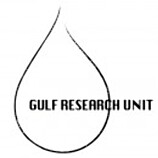
Archive: Gulf Research Blog
Blog articles from 2009 to 2012. The Gulf Research Unit is research programme based at the University of Oslo.
Slippery slope towards democracy?
Denne artikkelen er over ti år gammel og kan inneholde utdatert informasjon.
By: Jon Nordenson, research assistant / master student, Department of Culture Studies and Oriental Languages, University of Oslo
The last couple of weeks have been extremely eventful in Kuwaiti politics. Four ministers have faced interpellation in parliament, and two of them votes of no-confidence as well. For now, crisis seems to be averted, with both votes failing to gain a majority. But is this positive, negative, or perhaps a little bit of both?
As I have written earlier, four ministers faced questioning in parliament (interpellations) last week, two of them being PM Sheik Nasser al-Mohammed and interior minister Sheikh Jaber al-Khaled, who also faced votes of no-confidence. Or, to be precise, the PM faced a vote of “no-cooperation”, but had it gained a majority, the lack of confidence would still be rather obvious. Each of these votes could easily geared political crisis in Kuwait had they passed, with the dissolution of parliament being a likely outcome. In stead, the PM was backed by 35 MPs, with 13 MPs against him and one abstaining. As for the interior minister, the numbers were 26 in favor of the minister, 18 against him and 5 abstaining.
So, crisis seems to be averted for now. But does this give reason for celebration? There is one obvious problem: the PM was accused of mismanaging public funds. If the accusations were true, the consequences for the PM should of course have been more severe. But to determine what’s true and not is rather difficult, accusations have been rained both ways in the media, and the session itself was held behind closed doors. In addition, there are always many possible factors at play in Kuwaiti politics; tribal interests, internal royal family rivalry, personal interests (and their prospects for re-election) of MPs and so on.
Still, what is quite clear is that yet another political taboo has been broken in Kuwait, the interpellation and no-confidence vote on the PM. Last June interior minister Sheikh Jaber al-Khaled faced interpellation and a vote of no-confidence in parliament, being the first member of the royal family to do so. Now the PM himself has followed, which could be seen as a de facto extension of the powers of the parliament. Even though MPs has the constitutional right to interpellate ministers, exercising this right has been sensitive when it comes to minister from the royal family. Now the parliament has proved its ability to supervise and hold accountable for any wrong doings all members of the cabinet, including those from the royal family. One should of course bear in mind that the government probably knew very well that they would win both votes of no-confidence, and that things could have been very different if they weren’t so sure. But still, they went through with it, even in the midst of hosting a GCC summit.
Naturally, many in Kuwait have praised this “historical achievement all world should idolize”, as cabinet member Mohammed al-Busayri put it. However, others have been less enthusiastic. MP Ali al-Rashid, a liberal former member of the National Democratic Alliance, last week suggested amending the constitution, to make interpellations more difficult. Although he claimed that he was “only floating ideas for debate”, his proposal sparked harsh reactions from oppositional forces. For their part, the government has distanced themselves from the proposal, claiming to have “no relations whatsoever” with them.
Whether or not this is true is difficult to say. It might be a test-balloon from the government, or it might be an MP tired of Kuwait’s near permanent state of political crisis. Which leads us to a major problem; though the parliament successfully exercises their powers, these powers are, to quote Michael Herb, “largely negative”. The parliament can question ministers and block legislation, but have showed little ability to pass new legislation, and to deal with pressing issues. This is of course also the responsibility of the government, but the result is nevertheless political stalemate. Which in turn seems to frustrate Kuwaiti citizens, as well as MPs and ministers.
If Kuwait is indeed on a slippery slope towards democracy, this problem lies at its core. If the only result of the parliament’s battle for its democratic powers is stalemate and inaction, it will be hard to succeed, and it will be difficult to win popular support. Democracy is a big issue in Kuwait, but so are the financial crisis, a worn down infrastructure, and unemployment.
The interpellation of the PM, and the following vote of no-cooperation might be viewed, at least for now, as yet another step on Kuwait’s journey towards a more democratic political system. But unless the Kuwaiti parliament finds some way of combining its expanding supervisory powers with constructive developmental work, thing may become difficult up ahead.






